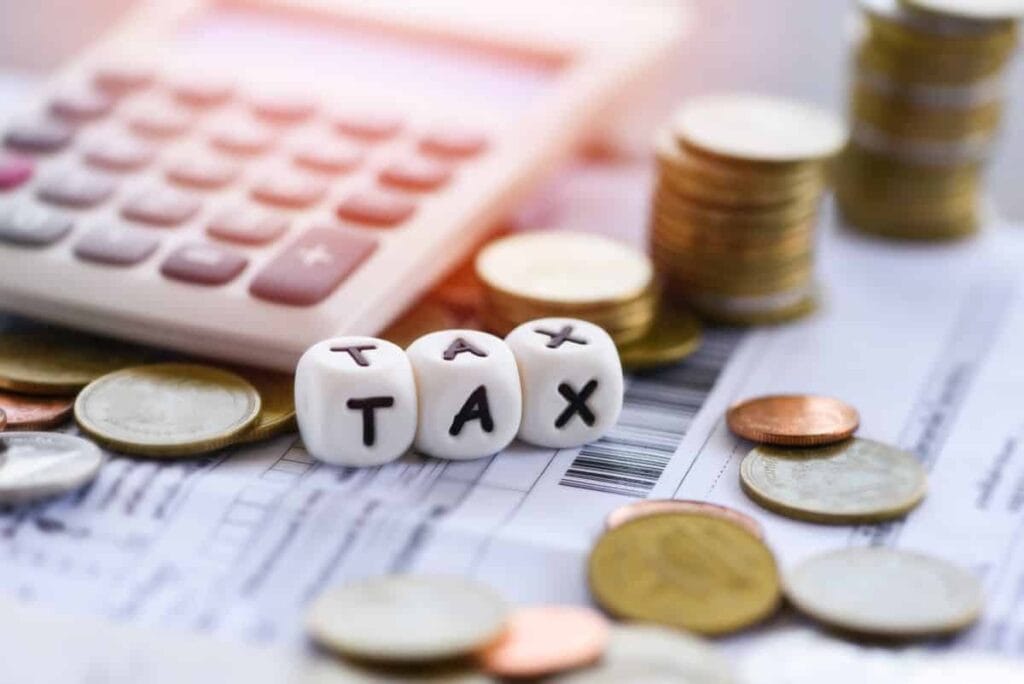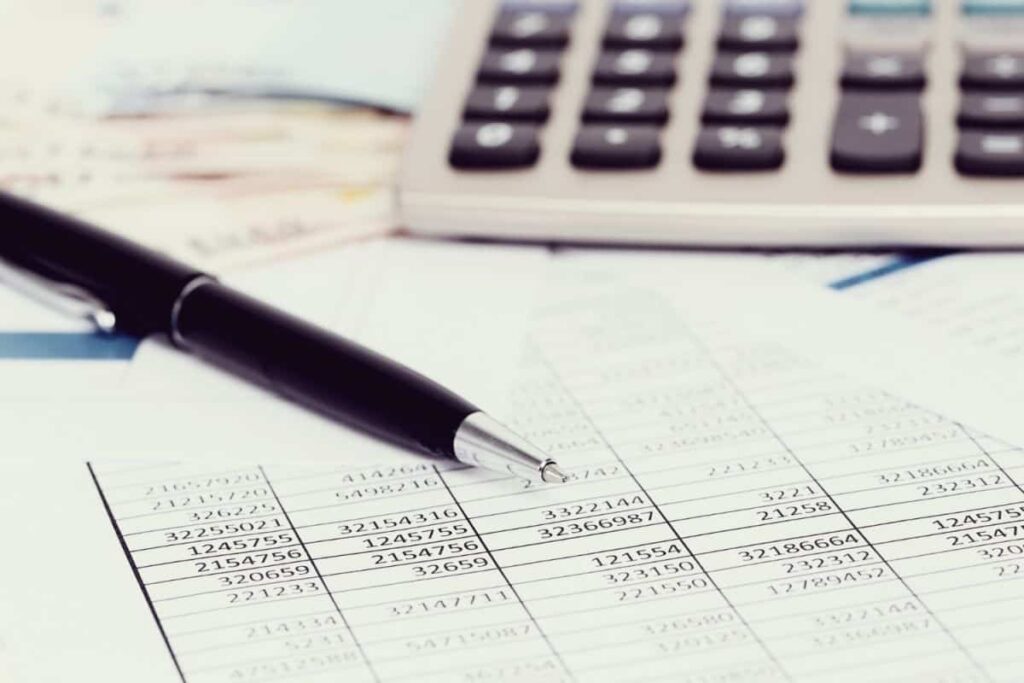Australian Taxation Basics
Especially for those who are unfamiliar with it, the tax system in Australia can be extremely complicated. In this article, we will present a fundamental breakdown of the system, as well as some suggestions on how you can maintain control over your financial obligations regarding your taxes. Therefore, whether you call Australia your permanent home or are just there for a short while, it is imperative that you continue reading in order to obtain the information that you require.
In Australia, our tax structure is one that is progressive. This implies that the tax burden increases proportionately with one's level of income. This post will discuss how our tax system operates as well as provide information on what you need to know in order to pay taxes in Australia. In addition to this, we will discuss some typical deductions and allowances that you might be able to take advantage of.
There are a few aspects of the tax system that you should be familiar with if you are a resident of Australia for tax purposes. To begin, even if you don't have any income at all during the year, you are still obligated to file an annual income tax return.
Second, the amount that you make determines the percentage of taxation that will be applied to your income. And finally, there are a variety of deductions and exemptions that can reduce the amount of income that is subject to taxation. Continue reading if you are interested in learning more about the taxes system in Australia.
Do you have a good understanding of your tax residency status? What should you know about the many kinds of income that need to be reported on your tax return in Australia? Do not worry if any of these questions cause you to scratch your head; we are here to assist you in any way we can.
We will provide an overview of the fundamentals of Australian taxation in today's post on our company blog. We will walk you through the process of filing your Australian tax return, as well as explain what tax residency is and what forms of income need to be reported.
Nearly everyone in Australia is subject to some form of taxation on any income they bring in. In this article, we will take a more in-depth look at the fundamentals of the tax system in Australia, including who is required to pay taxes, how much tax you are required to pay, and what kinds of income are subject to taxation.
In addition to that, we will go through some of the more typical tax deductions and exemptions that may be available to you. Do not be hesitant to get in touch with an expert accountant or tax lawyer if you have any questions regarding the tax laws in Australia or if you require assistance in preparing your tax return.
Do you understand the difference between your assessable income and your taxable income? What's the difference between the two, and how do either of them affect the amount of tax you have to pay? In this essay, we will discuss the fundamentals of Australian taxation, namely what information you must have in order to submit your tax return.
In this section, we will discuss the many forms of income that are subject to taxation in Australia, as well as the significant deductions and credits that can lower your overall tax liability. Read on to learn everything you need to know about the tax system in Australia, whether you're preparing your tax return for the first time or you want to be sure you're taking advantage of all the tax breaks that are available to you.
When it comes to settling their tax obligations, the majority of Australians have a lot of questions. What exactly is the distinction between income tax and payroll tax, for instance? How exactly do returns on investments work? This post on my blog is intended to provide an overview of the fundamentals of taxation in Australia so that you may gain a better understanding of what you are required to pay and when it is due.
We will discuss a wide range of topics, including but not limited to income tax, capital gains tax, and the GST. Continue reading if you want an introduction to the fundamentals of Australian taxation, regardless of whether you are just starting out in your working life or getting ready to file your annual tax return.
Did you know that some of Australia's tax regulations are among the most complicated in the whole wide world? Before you begin to file your taxes, it is essential to educate yourself on these concepts if you are not already aware of them. In this article, we will provide an introduction to the fundamentals of Australian taxation, including topics such as who is required to pay taxes and what types of income are subject to taxation.
In addition to this, we will walk you through the process of filing your tax return and utilizing the deductions and credits that are available to Australian taxpayers. Read on for more information about Australian taxation whether you are either a new resident or just want a refresher on the rules that apply to you because this article has everything you need to know.
Let's get started!
How to Get Ready, Submit, and Get the Most Out of Your Tax Return

Your tax return may be impacted by a variety of factors, such as your sources of income from employment, investments, and government aid, such as any JobSeeker payments you may have received during the fiscal year.
Other things that can play a role include whether or not you have expenses relevant to your job, such as travel, equipment, clothing, or what you might have spent if you hadn't been working from home and instead had an office job.
1. Who is required to compile and submit an income tax return?
There are going to be certain individuals who won't be required to submit a tax return. People with lower levels of income and certain older people in Australia are typically included in this category.
Those who are required to file tax returns are often those who have reached specified income thresholds or who have earned particular sorts of income.
If you're unsure if you have to lodge a tax return, ATO's online questionnaire might help you figure it out.
2. In order to file your tax return, what kinds of documentation do you need?
When you're ready to submit your tax return, some of the things you'll need to have on hand include, but aren't necessarily limited to the following:
- Your social security number;
- Your bank account information, so that the ATO is aware of where to deposit any potential refund that you are entitled to receive;
- Any summaries or statements of income that have been provided to you by your employers;
- Information pertaining to aid and relief programs about payments from Centrelink (Services Australia);
- Particulars concerning any additional sources of revenue, such as businesses, properties, investments, or shareholdings;
- statements or receipts for the charges that you are claiming as deductions on your tax return;
- Any information you may have regarding a private health insurance plan;
- if you have made any charitable donations, the receipts for those donations.
Note that if you file your tax return by yourself using myTax, which is accessible through the myGov website and the ATO app, the vast majority of the information required from your employers, banks, government agencies, health funds, and other third parties will generally be pre-filled for you by the end of July.
3. When you file your tax return, are there any tax deductions that you are eligible to claim?
Work-related expenses will account for the majority of tax deductions. However, in order for a work-related item to be tax-deductible, the expense cannot be reimbursed in any way by the employee's employer. This is the case due to the fact that it has a direct bearing on earning an income and that you have a record of the transaction, such as a receipt (unless the amount you're claiming is $300 or less, in some situations).
Expenses that can be deducted from taxes due to employment include:
- Expenses related to vehicles and travel;
- Uniforms, in addition to specialized occupational apparel and protective work attire, including footwear;
- Expenses associated with working from home, such as those for energy, the phone, and the internet. Note that a simplified process for claiming these deductions will be available again this year (more information regarding this topic can be found below);
- Expenses related to your careers that are directly related to your education, such as tuition, textbooks, dues, and subscriptions;
- Tools and equipment, such as sunscreen and sunglasses if you work outside, or a laptop computer and the applicable software if you work in an office or at home. Tools and equipment, such as sunscreen and sunglasses if you work outside.
For more information on deductible items relating to your particular industry, please refer to the occupation and industry-specific deduction guides that are provided by the ATO.
In the meantime, if you use your costs for both work and personal reasons, you can only claim a deduction for the percentage of your expenses that is related to work. This could, for example, be fifty percent of the cost of your combined phone and internet bill.
You won't be able to deduct the full cost of your trip as a business expense if, for instance, you take a vacation at the same time that you attend a conference or study excursion that takes place outside of the state where you normally reside in.
4. Here are some other deductions that you might be eligible to take:
- Certain personal super donations if you've made any;
- Interest, dividends, and any other costs associated with the investment;
- gifts and donations made to beneficiaries who qualify for a tax deduction, such as charity;
- If you used a tax preparer, the fee for your return from the previous year.
Check out the myDeductions function that's available in the ATO app if you're having problems keeping track of all of your receipts. This enables you to save a record of your deductions during the course of the fiscal year, which you can afterwards upload when it comes time to submit your return.
5. Additional information if you plan to file for deductions related to working from home this year
The Australian Taxation Office (ATO) has stated that a "shortcut" approach will once again be available as an option for determining applicable tax deductions for individuals who have worked from home during the current or previous financial year (1 July 2020 to 30 June 2021).
What this implies is you can claim 80 cents for each hour you worked from home to cover any applicable tax deductions (noting, you may need proof such as a timesheet) rather than making computations for individual things.
Due to the fact that the shortcut is 'all-inclusive,' you are unable to make a claim for the shortcut in addition to a claim for personal expenses, such as bundled services for your phone and internet. In spite of this, you still have the option to make a claim in accordance with the protocols that are now in place.
In addition to the simplified approach, you have the option of using the real cost technique, the fixed-rate method (which gives you a deduction of 52 cents for every hour you work from home), or the simplified approach. If you are thinking about using an existing approach, you should check out the home office expenses page on the ATO website for further information, as you may need to do more research.
6. If you choose to file your tax return on your own, should you hire a tax agent?
Alternatively, you can complete a paper tax return or engage a registered tax agent to do it for you, both of which will incur a fee that is typically tax-deductible. You can lodge your tax return yourself for free using MyTax, which is accessible through the myGov website and the ATO app. Alternatively, you can pay a fee to have a registered tax agent do it for you.
Submitting your tax return on your own accord.
You ought to file your own tax return by October 31st, and if your financial situation isn't overly complicated, you should give serious consideration to doing it yourself. As noted above, a lot of information will also be pre-filled for you by late July.
Using the services of a tax agent who is registered
It is crucial to keep in mind that you will be required to pay a fee for the service of a registered tax agent in the event that you decide to employ their assistance in preparing and submitting your tax return; however, in most cases, this fee will be deductible in the subsequent tax year.
You need to be certain that the tax agent you hire is registered with the Tax Practitioners Board (TPB). By visiting the TPB website, you will be able to locate a tax agent who is registered or determine whether a particular person is registered.
If your financial situation is more complicated, working with a tax professional could give you a sense of relief because it could save you time, bring to your attention deductions that you were unaware of, and ensure that all of your claims are in accordance with the law.
On top of that, the vast majority of licensed tax agents have access to a special lodgement program. This gives them the ability to frequently submit tax returns for their clients after the standard deadline of October 31. However, you are required to get in touch with them in advance.
Where Can I Locate My Tax File Number (TFN)?
Your reference number for the tax and superannuation systems in Australia is referred to as a tax file number (TFN).
There is only ever going to be one TFN assigned to you, regardless of whether you change jobs, residential addresses, or even your name; it is a crucial element of your tax records, and it is only ever going to be assigned to you once.
Finding your TFN can be done in a few different methods, including the following:
- If you have a myGov account that is linked to the ATO, you can see your personal details by logging in, going to "My Profile," and then selecting "Personal details."
- Examine the documents that were sent to you by your employers, such as the most current super statement, the notice of assessment from the previous year, and the payment summary.
- If you utilize a registered tax agent, you should question them about it.
- If you log in to the Business Portal as a company or organization, you will be able to view the TFN of the entity displayed in the screen header of the majority of the portal's panels.
- If you are still unable to locate it, you can contact the ATO at the toll-free number 13 28 61 between the hours of 8:00 am and 8:00 pm on weekdays and 10:00 am and 4:00 pm on weekends.
Fringe Benefits Tax (FBT)
1. What exactly are ancillary benefits?
In addition to your wage or compensation, or in exchange for forgoing some of your salaries as part of a salary sacrifice arrangement, a fringe benefit is anything additional that you get from your company.
The benefit is not typically in the form of income, earnings, or cash, and it may be something for you, your spouse, or your children.
It is your employer, not you, who is responsible for paying the federal benefits tax (FBT) that may be applicable to the benefits that you and your family may get.
2. Why do corporations provide their employees with ancillary benefits?
Employers might have an easier time recruiting, retaining, and motivating employees with the help of ancillary perks. Employers are getting more competitive with what they give their employees, and one way that they may gain a competitive edge is by providing their employees with a variety of fringe benefits.
Free food, coffee bars, cheap gym memberships, and entertainment are some of the kinds of perks that can make employees feel valued and contribute to a healthier work environment. Obviously, the FBT does not apply to all of these bonuses, but it does apply to some of them.
3. How can I get a tax deduction from my fringe benefits?
As part of a salary package arrangement, you may be offered additional benefits in exchange for a portion of your compensation in some cases. Depending on the specifics of your situation, this may cause you to fall into a lower tax band, which is a significant benefit if you have a larger taxable income.
4. What exactly is meant by the term "fringe benefit"?
The term "fringe benefits" can refer to a wide variety of different privileges. The most typical ones are as follows:
- A leased automobile for your personal use that is part of an arrangement known as a "novated lease";
- Use of a company vehicle for personal use;
- Loans with a discount;
- Memberships at health clubs and gyms;
- Expenses related to amusement, such as complimentary or subsidized meals, movie tickets, and lodging;
- Individual or family medical insurance;
- Allowance for living away from home (also known as LAFHA);
- Real estate, which includes both land and buildings;
- The Right to Own Property, including shares and bonds;
- Fees for daycare and schools can be expensive.
If your company provides you with items that are necessary for you to perform your job, such as a mobile phone or apparel designed for your specialized occupation, those items are not often regarded as taxable fringe benefits under the law.
On the other hand, if you pay for these things out of your own pocket, you might be able to claim a deduction on your taxes. It is essential to keep in mind that you are unable to claim a tax deduction for a work-related item if you are afterwards repaid for the expense by your employer.
Your superannuation fund will not charge you fringe benefits for any concessional contributions you make. As a result, they have the potential to be a tax-efficient method of adding to your resources for retirement.
5. What exactly is the tax on fringe benefits (FBT)?
Your employer is responsible for paying Fringe Benefits Tax (FBT) on any applicable benefits that they provide to you and your family.
The FBT is a distinct entity from the income tax. Instead, it is based on the value of a fringe benefit that is taxed on the employee.
The cost to your employer of delivering the benefit to you is typically considered to represent the taxable value of the benefit. However, the taxable value of certain benefits, such as automobile benefits, is determined by applying a statutory formula. This formula does not necessarily reflect the real cost to your employer; rather, it is used to determine FBT and any reportable fringe benefits amount.
In contrast to the fiscal tax year, which runs from 1 July to 30 June, the FBT year runs from 1 April to 31 March.
6. What does it mean for an amount to be considered reportable for fringe benefits (RFBA)?
Imagine that the total taxable value of the fringe benefits granted to you and your family in an FBT year is more than $2,000; this means that you are required to pay tax on those benefits. In that instance, the number of your reportable fringe benefits will be included in the income statement that you compile at the conclusion of the fiscal year (formerly called a payment summary).
The amount that must be reported does not take into account some perks, such as free meals and entertainment, as well as parking that is given by the company.
Even while an RFBA is not considered to be taxable income, depending on your individual circumstances, it may be used to evaluate whether you are eligible for a number of benefits and duties or whether you are responsible for them.
These include Higher Education Loan Program (HELP), tax offsets, and Financial Supplement repayments, as well as Family Tax Benefits, Medicare levy surcharges, private health insurance rebates, child support payments, and superannuation co-contributions.
On the website of the ATO, you will discover further information about the purposes for which your reportable fringe benefits amount is used.
Frequently Committed Tax Errors

According to the Australian Taxation Office (ATO), the majority of errors made by Australians while filing their tax returns are either basic mistakes made by persons who file their taxes early or forget to list all of their income.
As of the end of July, information regarding a taxpayer's job income, bank interest, share dividends, and health fund will be automatically included in myTax. As a result, taxpayers who try to submit their returns early are more likely to be compelled to go back and revise their claims.
The Australian Taxation Office has identified as big mistake-makers those people who make significant purchases at the end of the financial year sales period in the expectation of claiming the entire amount.
An official spokeswoman for the ATO stated that deductions for things acquired for employment should be proportioned based on the number of days held in the relevant fiscal year.
"Purchases that exceed the $300 limit are required to be depreciated over the course of a number of years (effective life)."
10 Things You Didn’t Know You Could Claim On Tax
1. Your Laundry
Anyone who is responsible for maintaining a uniform clean and attractive is eligible to submit a claim for reimbursement of such costs. You are eligible to receive one dollar for every load (remember to keep note of the number of times you do laundry), and it also covers the cost of dry cleaning. If the expenses are less than $300, you should be able to claim them on your taxes even if you don't have the receipts. Anything above that amount will necessitate the production of evidence.
2. Entertainment
The development of a nice atmosphere at one's place of employment is high on the priority list of many companies. In many workplaces, there is a designated area for employees to relax and have fun with games, pool tables, and other similar amenities. Another strong reason to bring some joy into the workplace is that any money spent on entertainment for employees can be deducted from their taxable income.
3. Giving to charitable causes
Donating money throughout the year is beneficial not just for the organizations that you support but also for the amount of taxes you pay. This includes any partnerships that have been formed with charitable organizations and even local charity races. Be sure to keep track of everything, and remember to include it in your claim at the end of the year.
4. Sun protection
Does your employment take you outdoors? Sunscreen is an example of a tax deduction that can be taken by the ATO according to the occupation. This deduction is entirely dependent on whether or not you are required to work outside (it does not count if you prefer to work outside). It would appear to be an improbable subject to file a claim over, but the cost of protecting yourself from the Australian sun can quickly build up to a significant amount of money.
5. Costs associated with working from home
The past year has seen a rise in the number of people working from home, which has inevitably resulted in additional costs. The Australian Taxation Office (ATO) has devised a shortcut approach that reduces the amount of record-keeping that is required in order to claim tax credits for working from home.
Electricity, internet access, home office equipment, and a great many other things are among the things that can be deducted from your taxes. Visit the page dedicated to working from home for more information in-depth.
6. A four-legged employee
The cost of purchasing a dog is not deductible for tax purposes; however, if the dog is used for protection or is essential on a farm, you may be able to deduct the expense of providing for and caring for the dog. This covers the cost of food, veterinary care, and any other supplies or equipment you may require.
7. Lectures and educational classes
There are undoubtedly innumerable courses, seminars, webinars, and other chances available, no matter what field you work in, for either learning new skills or keeping up to date on industry standards. You are eligible to deduct the cost of the course as a self-education expense provided that it contributes to the advancement of either your professional career or the skills of your workforce.
8. Cleaners
If you pay for someone to come clean your office or workplace, this is considered a work-related expense and can therefore be claimed as a deduction. This also covers the cost of cleaning instruments (like a vacuum cleaner), so you should be sure to save the receipts for those as well.
9. Your income
You can deduct from your taxable income any premiums that you pay for an income protection insurance policy since they are considered claimable expenses. When you file your taxes, you need to make sure to include them.
10. Subscriptions
If you use your newspaper subscriptions for work, whether it be to the New York Times or your local daily, you may be eligible to deduct the cost of those subscriptions from your taxable income. Anyone who works in the media is eligible to receive a refund for their TV subscriptions.
When you use the ASIC tax calculator to discover a preliminary estimate of your tax payable, keep in mind that this tool, along with others like it, does not typically include these deductions; so, your final bill could not be as much as you think it to be!
When it comes time to file your tax return online in Australia, you may, of course, claim all the regular business expenditures you incurred, including the cost of any digital marketing you carried out during the course of the year.
When calculating the return on investment (ROI) for your marketing activity, keeping this in mind is an important consideration to make.


















